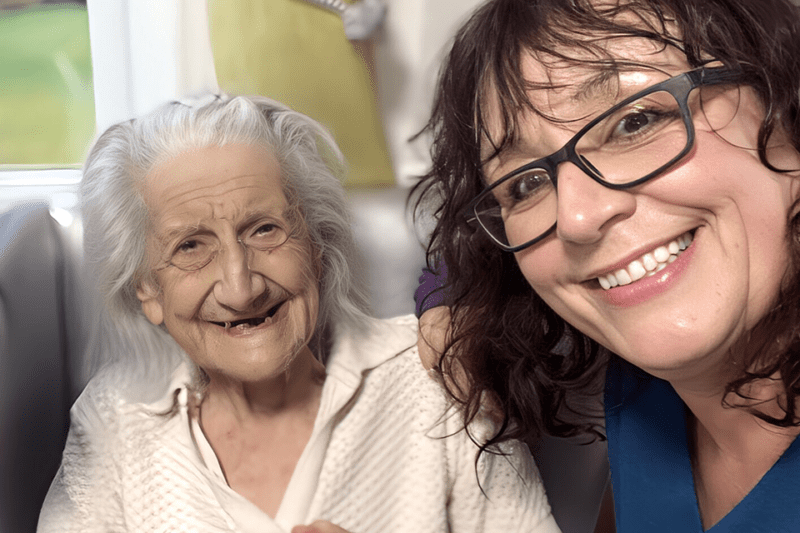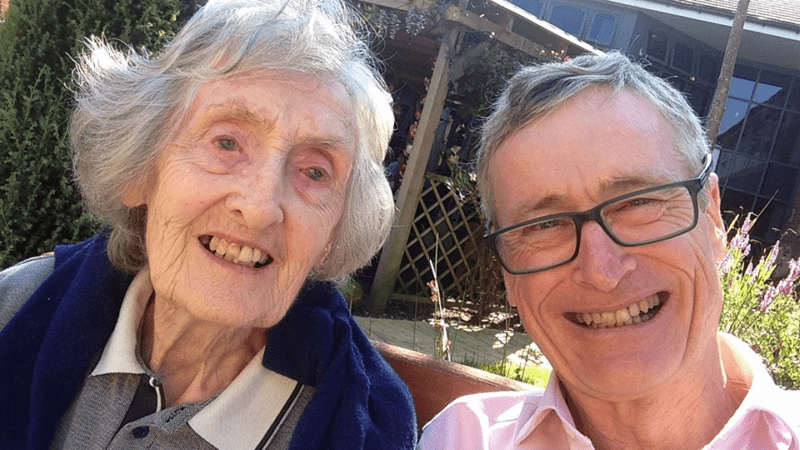
Christmases with Ben were filled with music
Janet shares her experience caring for husband Ben and how they maintained the joy of Christmas after his diagnosis.
Huntington’s disease is a genetic disorder caused by a faulty gene on chromosome 4. A protein called Huntingtin usually helps nerve cells develop but when faulty it can damage them instead and this mainly occurs in the areas of the brain responsible for movement, learning, cognition and emotions (basal ganglia and cerebral cortex). Huntington’s disease is primarily thought of as a condition of motor function – that is, it affects the person’s movement. But there can be damage to the brain which can develop into dementia.
The first signs of Huntington’s disease are more commonly seen in the 30-50 year age group but current research indicates that about 10% of cases can appear after the age of 60 years and 5-10% of cases under the age of 18 years (known as juvenile Huntington’s disease).
As the disease progresses people who have Huntington’s are increasingly likely to have involuntary movements causing the characteristic signs (chorea) of Huntington’s disease. This can cause embarrassment, distress, discomfort and social isolation. As the disease progresses it can also cause problems with swallowing, speech, balance and increase the risk of falls.
Research has indicated that in Huntington’s disease the person’s cognitive processes are also affected and get progressively worse over the years with some people going onto develop dementia in the later stages of Huntington’s. The cognitive changes could include:
The person may also show signs of depression or anxiety.
There is no cure or specific treatment for Huntington’s disease as yet but UK and international research is ongoing. If a family knows they are at increased risk of having the faulty gene they could be offered a DNA test. Only Regional Genetics Clinics offer the testing and access to this is via your GP.
With Huntington’s disease the interventions are focused on support and management of the changes; working with the person and their family to ensure they can live as well as possible with the condition. The physical effects of Huntington’s disease can be managed by:
If the person with Huntington’s has significant communication or cognitive issues they can be reduced by:
Remember that comprehension can often be well preserved even if the person cannot speak.
The person with Huntington’s and their family may well have experienced the disease in other family members and have fears about how this will progress and what help and support they may be able to receive. There may also be worries about any children within the family and whether or not they may eventually have Huntington’s too.
For more information, visit the Huntington’s Disease Association website.
Our virtual clinics give you the chance to discuss any questions or concerns with a dementia specialist Admiral Nurse by phone or video call, at a time that suits you.

Janet shares her experience caring for husband Ben and how they maintained the joy of Christmas after his diagnosis.

Shara reflects on her journey caring for Anna, her mother, who was diagnosed with vascular dementia in 2016.

Richard shares his experience caring for his mother, Peggy, and why he’s chosen to leave a gift to Dementia UK in his Will.